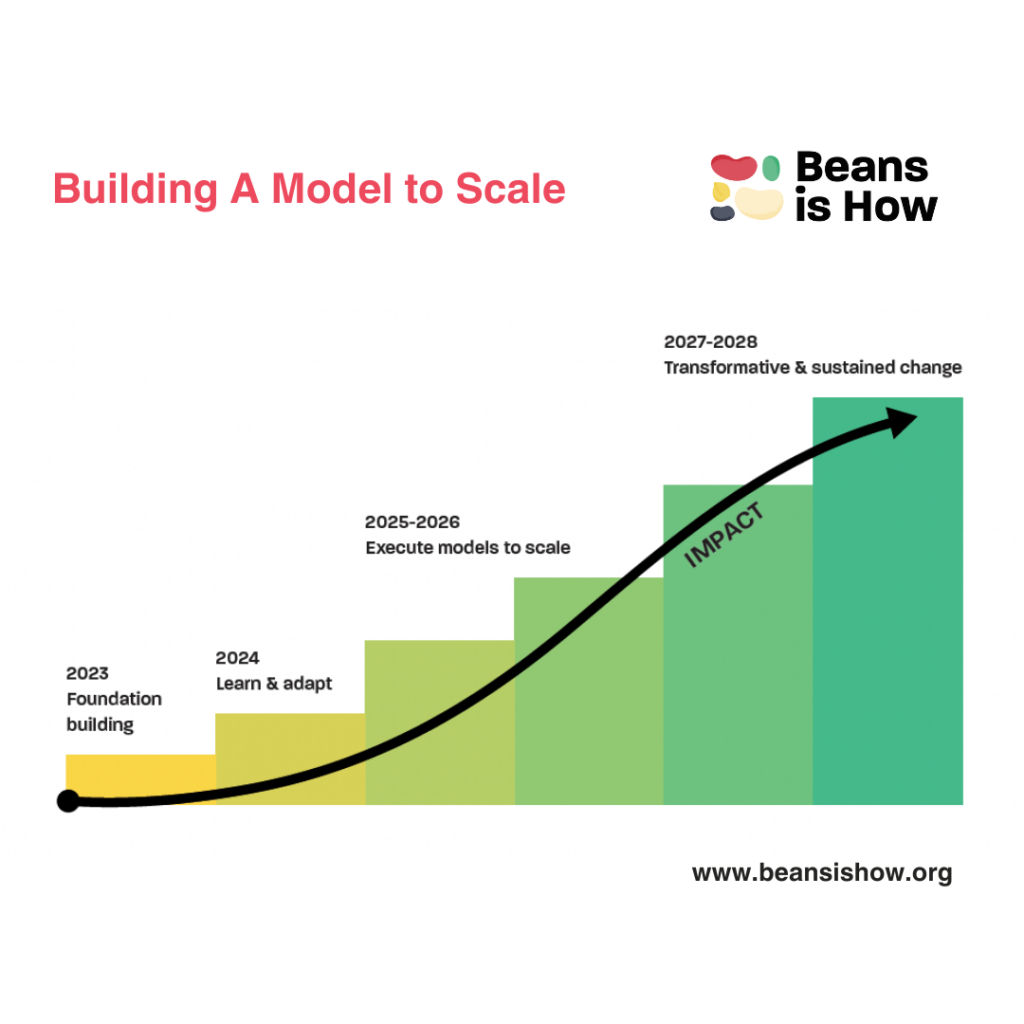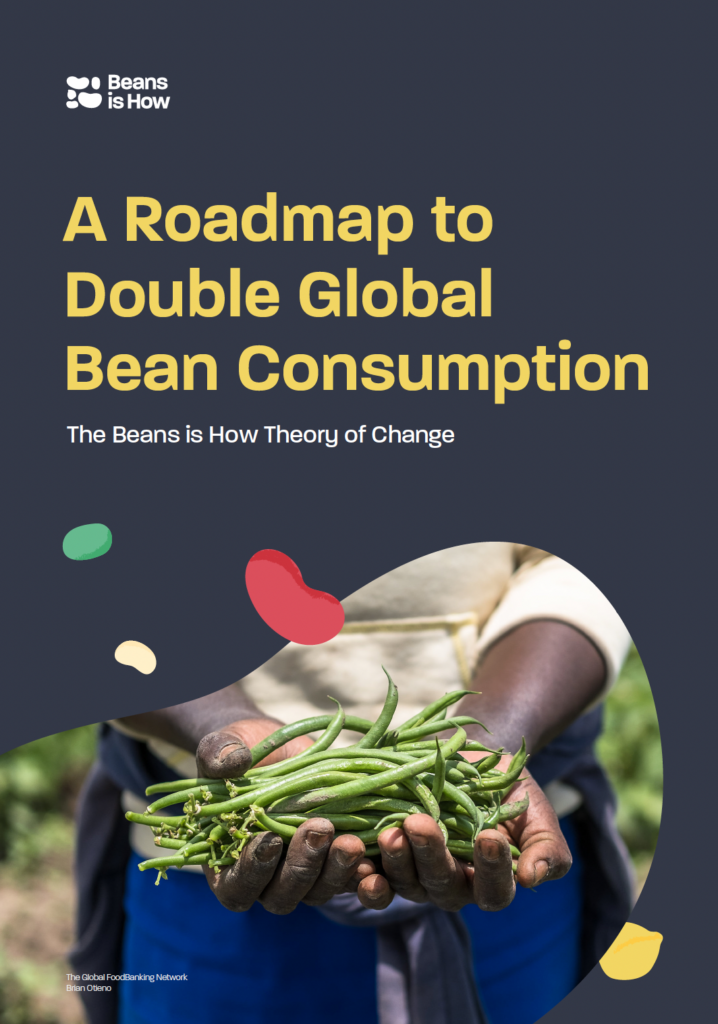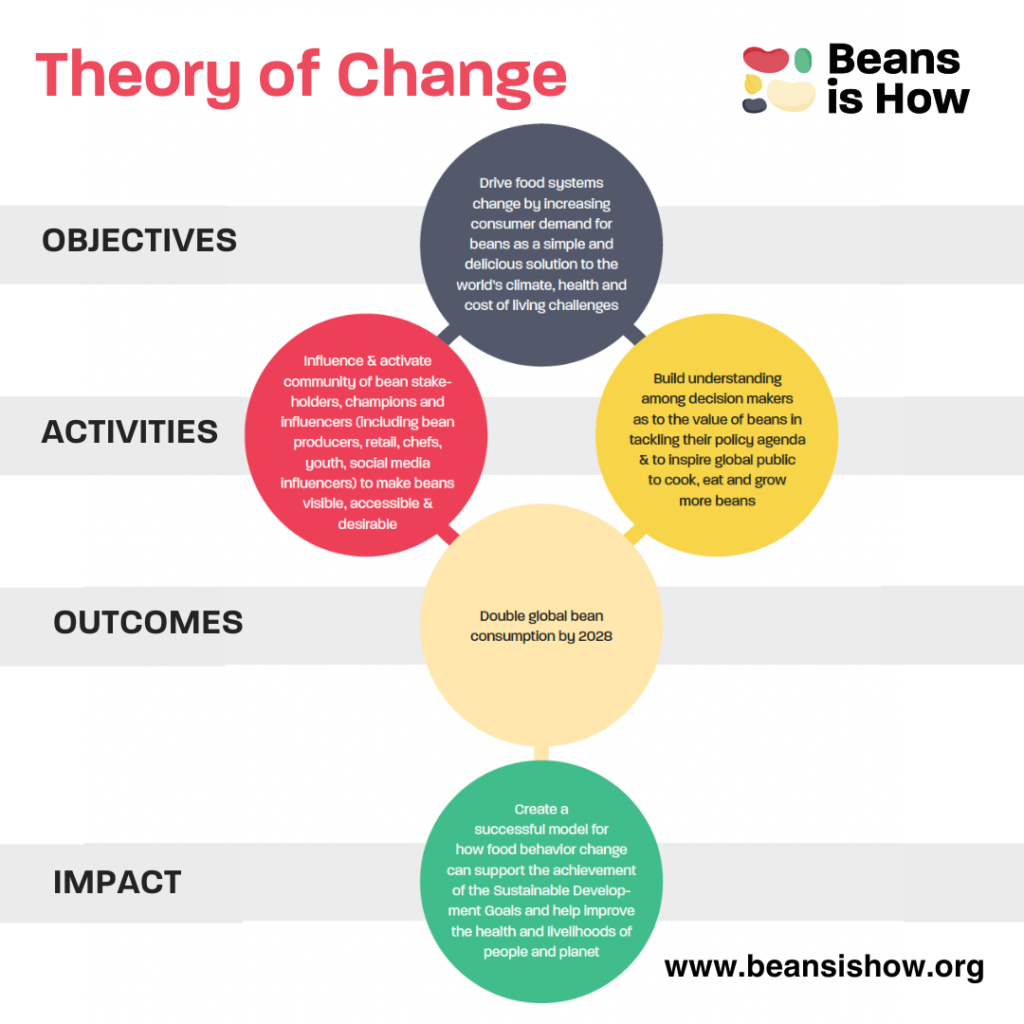Beans is How aims to raise awareness and inspire partners to promote the value of beans for more sustainable diets and climate-smart agriculture.

August 31, Dar es Salaam, TANZANIA
A campaign to double global bean consumption for more sustainable diets and food systems will focus on Kenyan consumers and producers in a pilot effort for East Africa.
A year after announcing the campaign at last year’s forum, Beans is How will present its roadmap for driving a 100 per cent increase in bean consumption by 2028 at the Africa Food Systems Forum 2023, highlighting Kenya as one of four initial priority countries.
Latest available figures indicate annual per capita consumption of pulses, which include beans, peas and lentils, of less than 5kg in Kenya according to 2017 data, compared to a global average of around 7.5kg. However, the campaign also called for more recent, comprehensive data to better understand consumption levels across the countries.
Unique to neighbouring countries, Kenya would benefit from increased accessibility and availability of beans grown locally; it produces only two-thirds of the beans consumed in the country, importing around 300,000 metric tons a year to meet existing demand.
“About half of the Kenyan population eat pulses regularly, which means half the country is missing out on a delicious, nutritious ingredient, partially due to lack of market supply and affordability,” said Paul Newnham, Executive Director of the SDG2 Advocacy Hub, which coordinates the Beans is How campaign.
“By raising awareness of the benefits of incorporating beans into Kenyan diets, and working closely with partners, we hope to have a transformative impact on health, livelihoods and sustainable food production. This includes aligning with efforts to ensure beans are part of healthy school meals, and included in food services in both urban and rural settings.”

A Roadmap to Double Global Bean Consumption
In its newly launched report, which sets out a strategic roadmap for doubling global bean consumption, Beans is How outlined plans to drive up demand for beans and other pulses by promoting the nutritional and environmental benefits of beans while increasing visibility, accessibility and desirability. The campaign will also work with partners to encourage more farmers to grow beans, particularly new and improved varieties.
As a nutrient-dense food with a low environmental impact, greater levels of bean consumption would increase both the quality and sustainability of Kenyan diets, particularly as demand for protein increases, according to the campaign organisers.
The roadmap includes developing digital campaign efforts to promote recipes and cooking advice by working with food champions, such as chefs and social media influencers. The campaign has designed a “Bean Menu Challenge” to encourage chefs to feature beans more visibly in restaurants.
“This campaign is formulated around a simple ask that has a big impact. Chefs are trusted voices that can influence food trends. If every chef added more beans to their menus or in their products, this would reach millions of people,” said Chef Sam Kass, Founder of TROVE, Beans is How Champion, and Senior Policy Advisor for Nutrition in the Obama administration.
The campaign is also calling for more supportive efforts to encourage consumption and production, such as subsidies and policies to encourage farmers to grow beans. Integrating beans into agricultural practices reduces the need for synthetic fertilisers as pulses convert atmospheric nitrogen into a plant usable form. They also use less water than many other crops, helping to conserve a vital natural resource.
“Beans have so many benefits, particularly in African countries, where they are mainly grown by women. However, often farmers need access to seeds, to extension and to markets to get benefits to livelihoods and health improvements. This is an opportunity all of us as partners should embrace,” said Dr. Agnes Kalibata, President of AGRA, former Special Envoy to the UN Food Systems Summit and a Bean Champion.
Beans is How is a coalition of more than 60 partners, including AGRA, The Kraft Heinz Company, the World Business Council for Sustainable Development (WBCSD), The Global FoodBanking Network, Google, and the Pan-African Bean Research Alliance (PABRA).

Theory of Change
Its “Theory of Change” was informed by the Bean Science and Innovation Advisory Council made up of global experts, who guided the strategy and decision of initial priority countries, which also include India, the UK and the US.
“Beans already have so much to offer from a nutritional and environmental perspective, but new, improved varieties are constantly being developed that respond to emerging needs and challenges,” said Jean Claude Rubyogo, Co-Chair of the Science and Innovation Advisory Council, as well as Global Bean Program Leader and Pan-African Bean Research Alliance (PABRA) Director at the Alliance of Bioversity International and CIAT, part of CGIAR.
“Breeders and other crop improvement scientists at the Alliance of Bioversity International and CIAT and PABRA have developed more than 650 new varieties of beans that are more nutritious, faster cooking, tastier, and offer the increased resilience to grow amid climate extremes. We are hoping to see more investment into research and getting these varieties in the hands of smallholder farmers, particularly women, and increase our understanding about global consumption levels and barriers. ”
Beans is How will feature at this year’s Africa Food Systems Forum, where the Beans is How team will host a market stall and beans will be featured in cooking demonstrations by the Chefs’ Manifesto at the Culinary Village.
Notes to Editors:
For more information about the Theory of Change report launch, or interview requests:
Donna Bowater
Marchmont Communications
+61 (0) 434 35 099
Matthew Stafford
Marchmont Communications
+44 7788 863 692
Additional media resources for the Beans is How campaign are available HERE.

